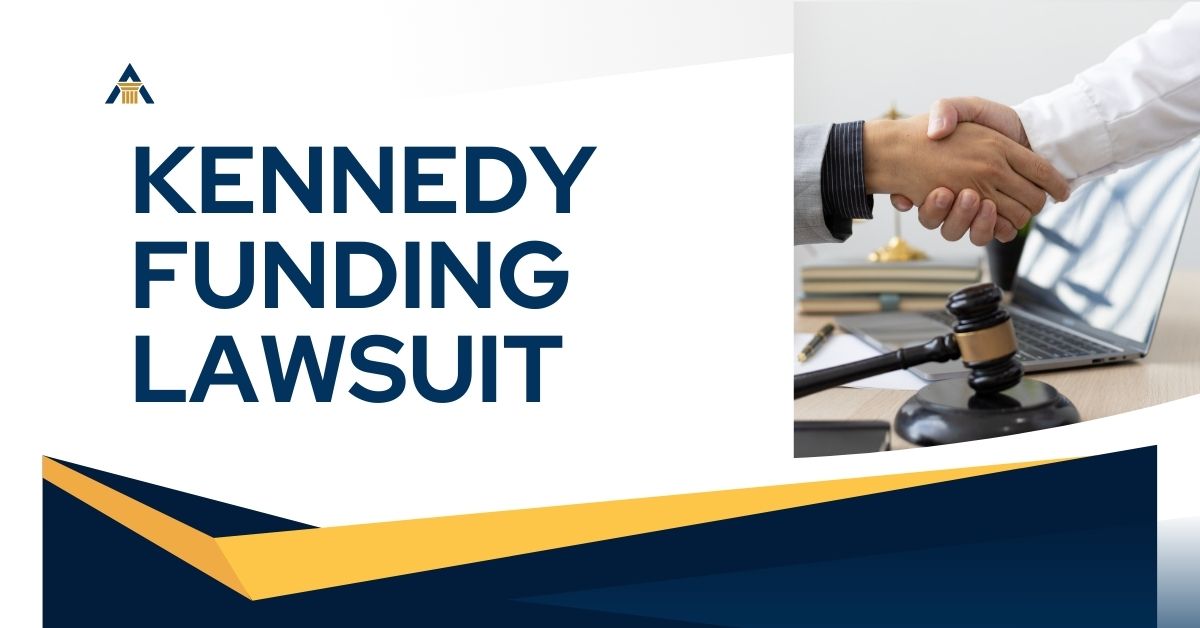The Kennedy Funding lawsuit has attracted attention due to its complexity, financial stakes, and the way it highlights disputes in alternative lending. Kennedy Funding, a well-known private lender specializing in asset-based commercial loans, has been at the center of numerous legal conflicts. Understanding this lawsuit requires looking at the company’s business model, the disputes that led to legal action, and the wider implications for borrowers and lenders in today’s financial landscape.
Background of Kennedy Funding
Kennedy Funding is a New Jersey-based direct private lender that provides short-term, high-interest loans backed by real estate collateral. The firm has been active for decades, often positioning itself as a resource for businesses and developers unable to secure traditional bank financing. Its willingness to fund high-risk deals has made it a valuable option for some, but also a target of criticism.
The Origin of the Lawsuit
The lawsuit against Kennedy Funding stems from allegations by borrowers who claim they were misled during the loan process. Many allege that the lender imposed hidden fees, altered agreements, or failed to provide promised funding. Disputes arose when borrowers found themselves locked into unfavorable loan terms that placed them in financial jeopardy.
Borrower Complaints and Claims
Borrowers involved in the lawsuit claim that Kennedy Funding engaged in deceptive practices. Complaints include excessively high fees, last-minute changes in loan conditions, and unreasonable repayment demands. Some borrowers allege that they were pushed into foreclosure or financial collapse as a direct result of the loan structures.
Kennedy Funding’s Defense
Kennedy Funding maintains that its loans are designed for high-risk borrowers who cannot obtain traditional financing. The company argues that clients are fully aware of the terms before signing agreements and that high fees are justified due to the significant risks involved. The defense emphasizes that borrowers seek out Kennedy Funding specifically because traditional banks refuse to fund their projects.
Legal Proceedings in the Case
The lawsuit has gone through multiple phases in court, with plaintiffs presenting evidence of misleading business practices. Courts have examined contracts, email correspondences, and borrower testimony. Kennedy Funding’s legal team continues to argue that all agreements were entered into voluntarily and with informed consent.
Impact on Borrowers
For many borrowers, the lawsuit reflects the financial hardship caused by Kennedy Funding’s lending structure. Some lost properties, businesses, and personal assets after being unable to meet loan obligations. The case has become an example of how aggressive lending practices can leave borrowers vulnerable to devastating losses.
Impact on Kennedy Funding
The lawsuit has placed Kennedy Funding under scrutiny, potentially harming its reputation in the private lending industry. While the company still operates, ongoing legal disputes may discourage future borrowers or lead to stricter oversight. Legal costs and reputational damage represent serious consequences for the lender.
Industry Implications
The Kennedy Funding lawsuit highlights the risks inherent in alternative lending markets. Many private lenders operate in gray areas where regulations are less strict than for banks. This case could prompt regulators to consider tighter oversight, increasing transparency in loan agreements and borrower protections.
Lessons for Borrowers
One clear lesson for borrowers is the importance of due diligence. Anyone seeking funding from private lenders should carefully review loan terms, seek independent legal advice, and consider long-term repayment risks. Borrowers must weigh the urgency of securing funds against the potential consequences of high-interest, short-term loans.
The Role of Regulation
The lawsuit raises questions about whether the private lending industry should be subject to stricter regulations. Unlike banks, private lenders often set their own rules, which can lead to disputes. Regulators may now consider expanding consumer protection laws to cover business borrowers in high-risk markets.
Public Reaction and Media Coverage
The Kennedy Funding lawsuit has gained media attention, with coverage focusing on borrower experiences and broader financial industry trends. Public reaction has been mixed, with some sympathizing with borrowers and others emphasizing personal responsibility in signing contracts. The media spotlight has further pressured Kennedy Funding to defend its practices.
Potential Outcomes of the Lawsuit
The case could result in financial settlements, stricter oversight of Kennedy Funding, or even changes in the company’s business model. A ruling in favor of borrowers could set a legal precedent that impacts other private lenders, forcing greater accountability in the industry.
Broader Financial Lessons
The Kennedy Funding lawsuit underscores the importance of transparency, ethics, and balance in finance. It demonstrates how the desperate need for funding can push borrowers into risky agreements, and how lenders must balance profitability with fairness. The dispute also highlights the blurred line between opportunity and exploitation in private lending.
Future of Private Lending After the Case
Regardless of the lawsuit’s outcome, the private lending sector may see significant changes. More borrowers will demand transparency, and more lenders may be pushed to adopt fairer practices. The case could also lead to industry-wide reforms that reshape how non-bank financing operates.
Conclusion
The Kennedy Funding lawsuit is more than just a dispute between a lender and borrowers; it is a reflection of the larger struggles within the private lending industry. It illustrates the clash between access to capital and borrower protection, as well as the ongoing tension between risk and responsibility. As the legal process unfolds, the case will continue to shape discussions about fairness, regulation, and the future of alternative financing.
FAQs
What is Kennedy Funding?
Kennedy Funding is a New Jersey-based private lender specializing in asset-backed commercial loans for high-risk borrowers.
Why is Kennedy Funding facing a lawsuit?
The lawsuit stems from allegations that the company engaged in deceptive practices, including hidden fees and misleading loan terms.
What are the main borrower complaints?
Borrowers claim that Kennedy Funding imposed excessive fees, changed agreements at the last minute, and pushed some into foreclosure.
How does Kennedy Funding defend itself?
The company argues that borrowers enter agreements voluntarily, with full knowledge of the risks, and that high fees reflect high-risk lending.
What could this lawsuit mean for private lending?
The case may lead to stricter regulations, more borrower protections, and greater scrutiny of non-bank lenders.
